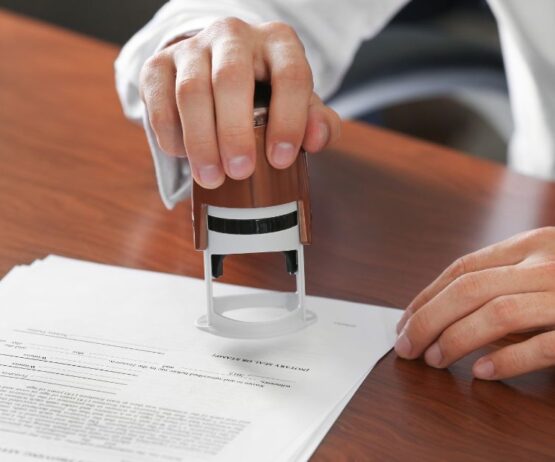

Notary what does it mean
A notary is a legally authorized individual by the secretary of state who performs various official duties related to document authentication and verification. This professional serves as a neutral and impartial witness to the signing of important documents, ensuring their validity, legality, and authenticity. A notary plays a vital role in preventing fraud, protecting against document tampering, and maintaining the integrity of legal paperwork.
The notary's office is a critical part of the legal system, providing a secure environment for the signing and authentication of documents, thereby ensuring that all paperwork is properly executed and safeguarded from potential fraud, document tampering, and other forms of illegal activity.
Notarizations are an important part of many legal processes, as they provide an added layer of security and trust to documents that need to be verified and authenticated.
What is a Notary Public? What Does Notary Public Mean?
A Notary Public, often simply referred to as a "notary," is a legally appointed and authorized official who plays a crucial role in verifying and authenticating various types of documents and transactions. The primary function of this person is to serve as an impartial witness to the signing of important documents, and their role is recognized and respected in many countries around the world.
What Does It Mean to Be a Notary?
To be a notary means taking on the role of a public official who acts as a neutral and impartial party in the notarization of documents. Notaries are typically appointed by government authorities, such as state governments in the United States, and they must adhere to strict guidelines and regulations governing their duties.
The Office of the Clerk of Superior Court approves and issues commissions of notary public. Each commission in the state of Georgia is for a term of four years and may be renewed prior to the expiration of the notary's term of office.
Individuals desiring to become a notary should submit an application to the Clerk of Superior Court in their county of residence.
Notary Republic vs. Notary Public. What is a notary republic?
It's worth noting that the term "Notary Republic" is a common misspelling of "Notary Public." The correct term is "Notary Public." There is no significant difference between the two; they both refer to the same role and responsibilities.
Notary Public vs Notaries public
"Notary public" and "notaries public" may seem similar, but there is a distinction in their usage:.
Notary public is the more common and standard term. It refers to an individual who has been appointed and authorized, has a commission by a government authority, usually a state or jurisdiction, to perform notarial acts.
Acknowledgment of their appointment and authorization is a necessary step in recognizing an individual as a commissioned officer, and is an important part of the process of ensuring that they are able to carry out their duties in an effective and responsible manner.
Notaries public is the plural form of "notary public." It refers to a group or collection of notary public officers.
When you use "notaries public," you are referring to multiple individuals who have been authorized to perform notarial acts.
What does a notary do?
A Notary is responsible for performing a range of official tasks to ensure the authenticity and legality of documents and transactions.
Some of the services include oath, acknowledgements, witnesses, affidavit , affirmation, jurats and many more.
What Can a Notary Do in Georgia?
A Georgia notary public has the authority to witness or attest signatures on documents; witness affidavits, take verifications, take acknowledgements, and administer oaths and affirmations.
A Notary in Georgia can perform the following key functions:
a. Verifying Signatures: They confirm the identities of individuals signing documents, provide information to verify the identity of individuals signing documents, making sure they are who they claim to be.
b. Witnessing Signings: Notaries witness the signing of documents, ensuring that signatories are willingly entering into agreements.
The notary must ensure that all requirements are met before witnessing the signing of documents, confirming that they understand the contents of the document, and ensuring that all parties are entering into the agreement willingly and of their own free will.
c. Administering Oaths and Affirmations: In cases where documents require oaths or affirmations, Notaries can administer them. For example, they can administer oaths for affidavits.
d. Certifying Copies: A Georgia notary public has the authority to make a certified copy of a document provided the document presented for copying is an original document and is neither a public record nor a publicly recorded document.
Documents which can be copied and certified by a Georgia notary public include: business transactions, school diplomas, personal letters, a social security card, insurance policies, accounting statements, contracts, lease agreements, invoices or bills of sale, student permission forms, consent to give medical treatment forms, living wills, and consent to travel forms.
A Georgia notary public may make a certified copy of a U.S. Passport using the passport holder’s affidavit and certified copy guidelines provided by GSCCCA.
e. Notarizing Documents: They place their official seal and signature on documents to confirm that they have verified the document's authenticity, the identity of the signatories, and the legality of the transaction.
Once all of the necessary documents have been signed and properly notarized, the process of completing the transaction can begin.
What Can a Notary NOT Do in Georgia?
A Georgia notary public is prohibited from making certified copies of publicly recordable documents which include: deeds, mortgages, and other instruments dealing with real estate, vital records, birth certificates, marriage records, divorce decrees, powers of attorney, probated wills, student records or transcripts from public schools, colleges or universities, military discharges, Uniform Commercial Code documents, court pleadings, documents marked “filed” or “recorded”, most documents retained by a government office, Certificates of Naturalization, Certificates of Citizenship, Declarations of Intention to Become a Citizen, foreign passports.
A Georgia notary public is not authorized to certify the authenticity of photographs.
What Is the Purpose of a Notary?
Notaries are commonly used in various situations, including:
a. Real Estate Transactions: They verify the identity of property buyers and sellers, witness the signing of deeds and mortgages, and ensure the legality of these transactions. In Georgia notaries can not perform corsage closings without an attorney’s supervision
b. Legal Documents: Notaries play a crucial role in the execution of wills, trusts, powers of attorney, and other legal documents.
c. Business Agreements: They notarize contracts and agreements, adding an extra layer of assurance regarding their authenticity.
d. Financial Transactions: Notaries are involved in financial processes such as loan signings, ensuring that borrowers understand the terms and conditions of their loans.
e. Government Documents: They can certify copies of government-issued documents, such as passports or birth certificates, for various administrative purposes.
What are the duties of a notary?
The duties of a notary public vary depending on the jurisdiction in which they are appointed, but generally speaking, a notary public is an individual who is authorized to witness the signing of important documents, administer oaths, and certify documents.
The primary duty of a notary public is to act as an impartial witness to the signing of documents.
The notary service provided by InkTrail is a convenient way for people to sign important documents quickly and securely, without having to worry about the accuracy or validity of the signatures.
See our articles

From explaining the role of notaries to the difference between notarization and attestation, when notarization is required, how to work with notaries, the notarization process, and notary regulations We will provide clear and concise answers to help you understand the intricacies of notarial services Whether you re wondering how to find a notary, what documents can be notarized, or the importance of notarized signatures, this article will cover it all

What is a notarized document and what does it mean to get something notarized?
What Does it Mean to Have a Document Notarized With a Notary Public?
Having a document notarized is the same as swearing under oath in a court of law, you are saying that the facts contained in the document are true
Contact Us
Hours:
Monday - Saturday 7am- 10pm
Only by appointment
E-mail:
contact@inktrail.net
Call:
© All Copyrights 2023 by InkTrail

